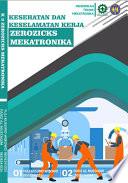
Research Methods in Human-Computer Interaction
Research Methods in Human-Computer Interaction is a comprehensive guide to performing research and is essential reading for both quantitative and qualitative methods. Since the first edition was published in 2009, the book has been adopted for use at leading universities around the world, including Harvard University, Carnegie-Mellon University, the University of Washington, the University of Toronto, HiOA (Norway), KTH (Sweden), Tel Aviv University (Israel), and many others. Chapters cover a broad range of topics relevant to the collection and analysis of HCI data, going beyond experimental design and surveys, to cover ethnography, diaries, physiological measurements, case studies, crowdsourcing, and other essential elements in the well-informed HCI researcher's toolkit. Continual technological evolution has led to an explosion of new techniques and a need for this updated 2nd edition, to reflect the most recent research in the field and newer trends in research methodology. This Research Methods in HCI revision contains updates throughout, including more detail on statistical tests, coding qualitative data, and data collection via mobile devices and sensors. Other new material covers performing research with children, older adults, and people with cognitive impairments. Comprehensive and updated guide to the latest research methodologies and approaches, and now available in EPUB3 format (choose any of the ePub or Mobi formats after purchase of the eBook). Expanded discussions of online datasets, crowdsourcing, statistical tests, coding qualitative data, laws and regulations relating to the use of human participants, and data collection via mobile devices and sensors New material on performing research with children, older adults, and people with cognitive impairments, two new case studies from Google and Yahoo!, and techniques for expanding the influence of your research to reach non-researcher audiences, including software developers and policymakers
- ISBN 13 : 0128093439
- ISBN 10 : 9780128093436
- Judul : Research Methods in Human-Computer Interaction
- Pengarang : Jonathan Lazar, Jinjuan Heidi Feng, Harry Hochheiser,
- Kategori : Computers
- Penerbit : Morgan Kaufmann
- Bahasa : en
- Tahun : 2017
- Halaman : 560
- Google Book : https://play.google.com/store/books/details?id=hbkxDQAAQBAJ&source=gbs_api
-
Ketersediaan :
Continual technological evolution has led to an explosion of new techniques and a need for this updated 2nd edition, to reflect the most recent research in the field and newer trends in research methodology.


